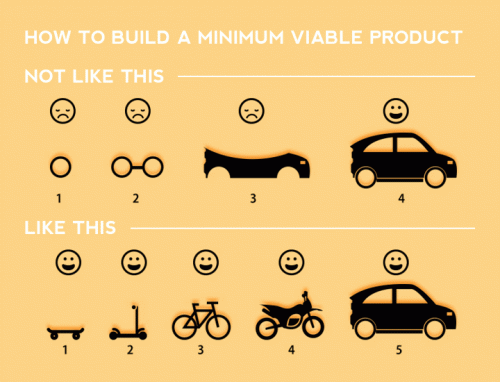I have just spent the best part of my Sunday fixing a bug that turned out being a seemingly-trivial two-liner. Such unpleasant experiences are all too frequent, and weight a lot on my view of code design.
My stance on code design

I call code design the process of designing the architecture of a piece of software: what are the objects it uses? how do they interact? how is the information passed around?…
My view of code design and software engineering has progressively evolved to favor extreme simplicity over sophistication. I believe that a good programmer should know design patterns, powerful language features, libraries dark corners, and not use them unless absolutely necessary.
Some rules of thumb
Here are some rules that I apply nowadays when writing code that I would like to last (I am aware that some of them go against well-advertised best practices).
- Keep it as simple a possible, really! Experimental results have shown that the tractability of a code base goes down as the square of the number of interactions, and thus much quicker than the number of lines in a project. Each time you add a line, think about it: can you make simpler? If not you’ll have to find resources to maintain your project as fixing bugs or adding features will grow harder.
- Design for the 80% usecases. In the same vein, a small decrease in the requirements can make your project much simpler [Woodfield1979]. Corner cases and minor usecases should not make the whole project complex and hard to maintain. If you can, give up on what is bringing in complexity. If you cannot, isolate it, and don’t let it sit at the core of your design.
- Don’t design for the future. Again the same core idea: don’t start planing for all the usecases, and all the difficulties that you haven’t encountered, you will most certainly design wrong, and chances are that you’ll add complexity that you do not use. Design simple, design cleanly and refactor as you go, based on concrete problems. This is known as the “YAGNI principle”.

- Don’t be clever. Each time you do a clever trick, whoever has to read and maintain this code will have to understand it (that person may be you, in a few years). Chances are that they’ll get it wrong and start by loosing a lot of time.
- Repeating yourself may actually be OK. This is a case of practicality beats purity. Repeating code is really a bad thing in software design, because it leads to an increased number of lines to debug, and tends to hinder reusability. However, adding complexity in order to save a few lines of duplicated code will cost you more in the long run.
- Use objects sparingly. Object are great, but are they always need? An object with a single method eval can probably simply be implemented by a function. The limitation of objects is that they all have a different behavior. As a result, the users and maintainers of your codebase will first have to understand how all your classes interact before understanding your code. This also means that there is a lot of benefit in making many different classes that have the same interface.
- Avoid abstractions and levels of indirection. The more levels of code piled on top one of the other, the more layers your maintainer is going to have to inspect to find were the bug might be. An abstraction hides another object or algorithm. To debug code, chances are that all the black boxes will first have to be opened.
Coding for others to debug
“Debugging is twice as hard as writing the code in the first place. Therefore, if you write the code as cleverly as possible, you are, by definition, not smart enough to debug it.” - Brian W. Kernighan

You may think that I am overemphasizing simplicity at the cost of functionality. Well, think about the future of your code. The net is full of unmaintained and abandoned code. If you want your project to grow and have a future, you will probably need people to help you. For a given purpose, the easiest the code is to read and debug, the more chances you will have to pick momentum.
Some external references I like (about software engineering, rather than debugging):
- Edmon Lau: Hidden costs that engineers ignore (Read this)
- Titus Brown: Writing (Python) Code that Doesn’t Suck
- Peter Norvig: Teach yourself programming in 10 years
- Paul Stachour and David Collier-Brown: You Don’t Know Jack About Software Maintenance
- Greg Wilson: Software carpentry: a course in software engineering
